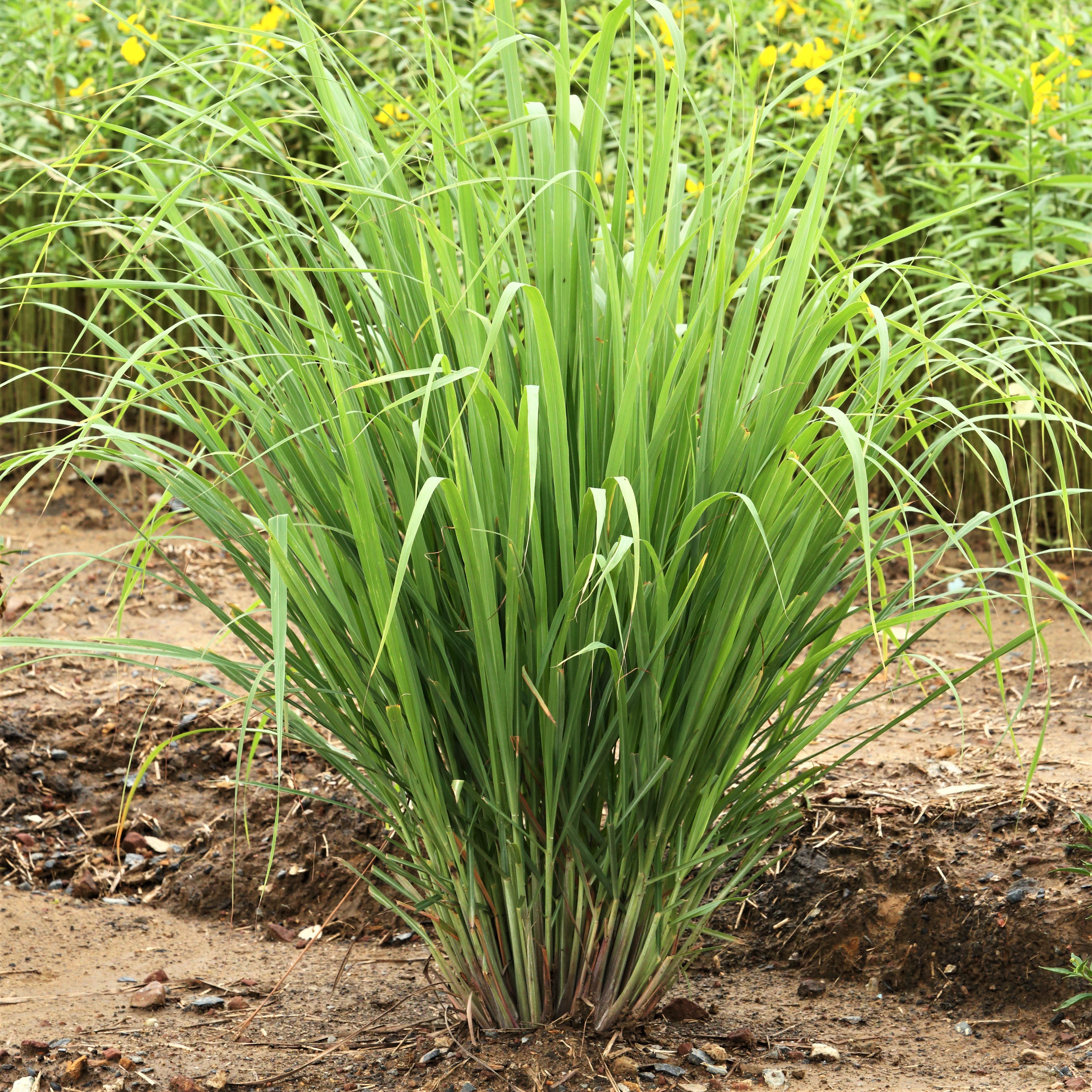
Cymbopogon mekongensis – China, Indochina.Cymbopogon martini (palmarosa) – Indian Subcontinent, Myanmar, Vietnam.Cymbopogon marginatus – Cape Province of South Africa.Cymbopogon khasianus – Yunnan, Guangxi, Assam, Bhutan, Bangladesh, Myanmar, Thailand.Cymbopogon jwarancusa – Socotra, Turkey, Middle East, Arabian Peninsula, Iraq, Iran, Afghanistan, Indian Subcontinent, Tibet, Sichuan, Yunnan, Vietnam.Cymbopogon goeringii – China, Taiwan, Korea, Japan incl Ryukyu Islands, Vietnam.Cymbopogon globosus – Maluku, New Guinea, Queensland.Cymbopogon giganteus – Africa, Madagascar.Cymbopogon gidarba – Indian Subcontinent, Myanmar, Yunnan.
 Cymbopogon flexuosus (East Indian lemon grass) – Indian Subcontinent, Indochina. Cymbopogon distans – Gansu, Guizhou, Shaanxi, Sichuan, Tibet, Yunnan, Nepal, northern Pakistan, Jammu & Kashmir. Cymbopogon dieterlenii – Lesotho, Namibia, South Africa. Cymbopogon densiflorus – central + south-central Africa. Cymbopogon commutatus – Sahel, East Africa, Arabian Peninsula, Iraq, Iran, Afghanistan, India, Pakistan. Cymbopogon coloratus – Madhya Pradesh, Tamil Nadu, Myanmar, Vietnam. Cymbopogon clandestinus – Thailand, Myanmar, Andaman Islands. Cymbopogon citratus (lemon grass or West Indian lemon grass) – Indonesia, Malaysia, Brunei, Philippines. Cymbopogon cambogiensis – Thailand, Cambodia, Vietnam.
Cymbopogon flexuosus (East Indian lemon grass) – Indian Subcontinent, Indochina. Cymbopogon distans – Gansu, Guizhou, Shaanxi, Sichuan, Tibet, Yunnan, Nepal, northern Pakistan, Jammu & Kashmir. Cymbopogon dieterlenii – Lesotho, Namibia, South Africa. Cymbopogon densiflorus – central + south-central Africa. Cymbopogon commutatus – Sahel, East Africa, Arabian Peninsula, Iraq, Iran, Afghanistan, India, Pakistan. Cymbopogon coloratus – Madhya Pradesh, Tamil Nadu, Myanmar, Vietnam. Cymbopogon clandestinus – Thailand, Myanmar, Andaman Islands. Cymbopogon citratus (lemon grass or West Indian lemon grass) – Indonesia, Malaysia, Brunei, Philippines. Cymbopogon cambogiensis – Thailand, Cambodia, Vietnam. :max_bytes(150000):strip_icc()/how-to-grow-lemongrass-078A9873-b2126d230e014f30ab450b17996743f2.jpg) Cymbopogon caesius – Sub-Saharan Africa, Indian Subcontinent, Yemen, Afghanistan, Madagascar, Comoros, Réunion. Cymbopogon bombycinus silky oilgrass – Australia. Cymbopogon annamensis – Yunnan, Laos, Vietnam, Thailand. Cymbopogon ambiguus (Australian lemon-scented grass) – Australia, Timor. In beekeeping, lemongrass oil imitates the pheromone emitted by a honeybee's Nasonov gland to attract bees to a hive or to a swarm. Lemongrass is used in this preparation and on its own in hoodoo to protect against evil, spiritually clean a house, and to bring good luck in love affairs. In Hoodoo, lemongrass is the primary ingredient of van van oil, one of the most popular oils used in conjure. One study found the tea may exert an erythropoiesis boosting effect. In the Caribbean, the tea is also brewed and consumed to boost immunity. The tea caused a recurrence of contact dermatitis in one case. citratus is consumed as a tea for anxiety in Brazilian folk medicine, but a study in humans found no effect.
Cymbopogon caesius – Sub-Saharan Africa, Indian Subcontinent, Yemen, Afghanistan, Madagascar, Comoros, Réunion. Cymbopogon bombycinus silky oilgrass – Australia. Cymbopogon annamensis – Yunnan, Laos, Vietnam, Thailand. Cymbopogon ambiguus (Australian lemon-scented grass) – Australia, Timor. In beekeeping, lemongrass oil imitates the pheromone emitted by a honeybee's Nasonov gland to attract bees to a hive or to a swarm. Lemongrass is used in this preparation and on its own in hoodoo to protect against evil, spiritually clean a house, and to bring good luck in love affairs. In Hoodoo, lemongrass is the primary ingredient of van van oil, one of the most popular oils used in conjure. One study found the tea may exert an erythropoiesis boosting effect. In the Caribbean, the tea is also brewed and consumed to boost immunity. The tea caused a recurrence of contact dermatitis in one case. citratus is consumed as a tea for anxiety in Brazilian folk medicine, but a study in humans found no effect. 
citratus is used both as a medical herb and in perfumes. While both can be used interchangeably, C. Besides oil production, citronella grass is also used for culinary purposes, as a flavoring.Įast Indian lemongrass ( Cymbopogon flexuosus), also called Cochin grass or Malabar grass, is native to Cambodia, Vietnam, Laos, India, Sri Lanka, Burma, and Thailand, while West Indian lemongrass ( Cymbopogon citratus) is native to maritime Southeast Asia. The principal chemical constituents of citronella, geraniol and citronellol, are antiseptics, hence their use in household disinfectants and soaps. These species are used for the production of citronella oil, which is used in soaps, as an insect repellent (especially mosquitoes and houseflies) in insect sprays and candles, and in aromatherapy. citratus from the Philippines, where it is locally known as tangladĬitronella grass ( Cymbopogon nardus and Cymbopogon winterianus) grow to about 2 metres ( 6 + 1⁄ 2 feet) and have magenta-colored base stems.



:max_bytes(150000):strip_icc()/how-to-grow-lemongrass-078A9873-b2126d230e014f30ab450b17996743f2.jpg)



 0 kommentar(er)
0 kommentar(er)
